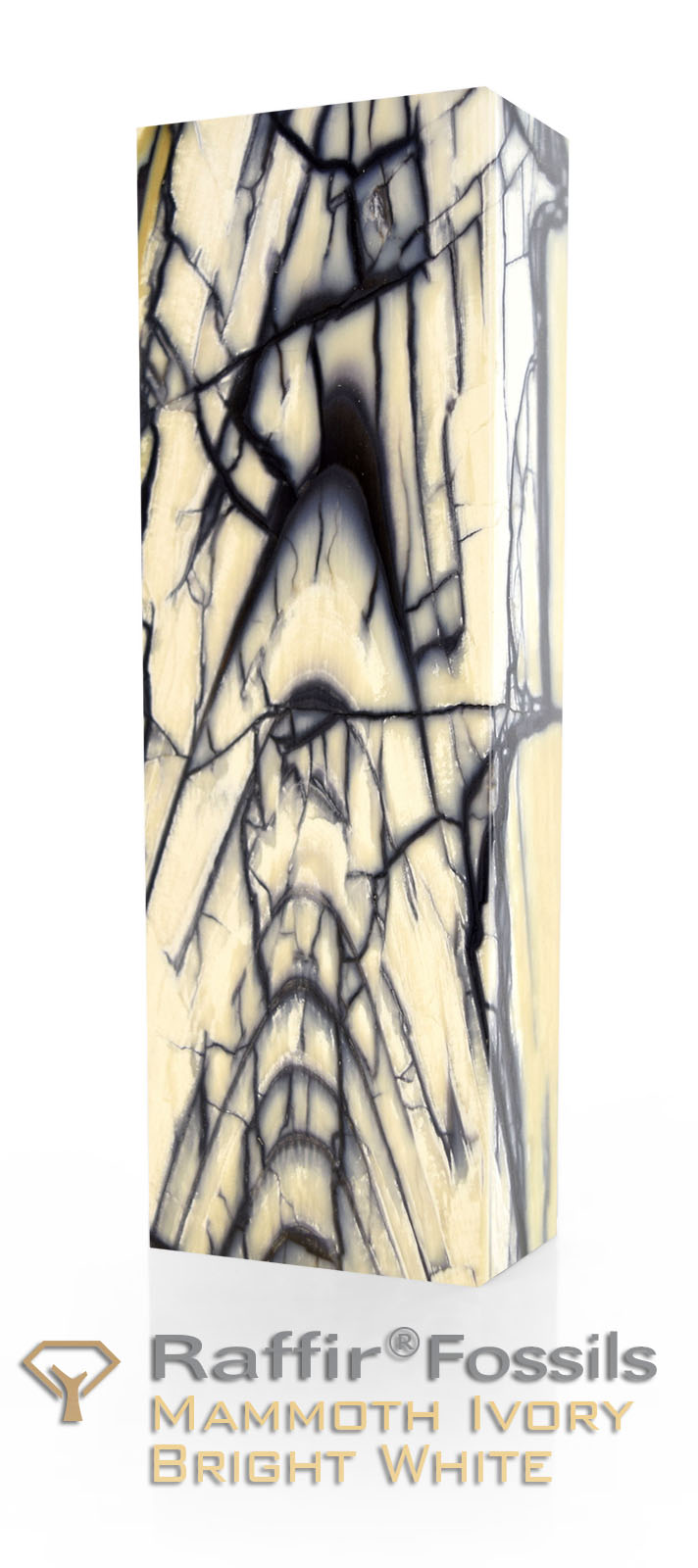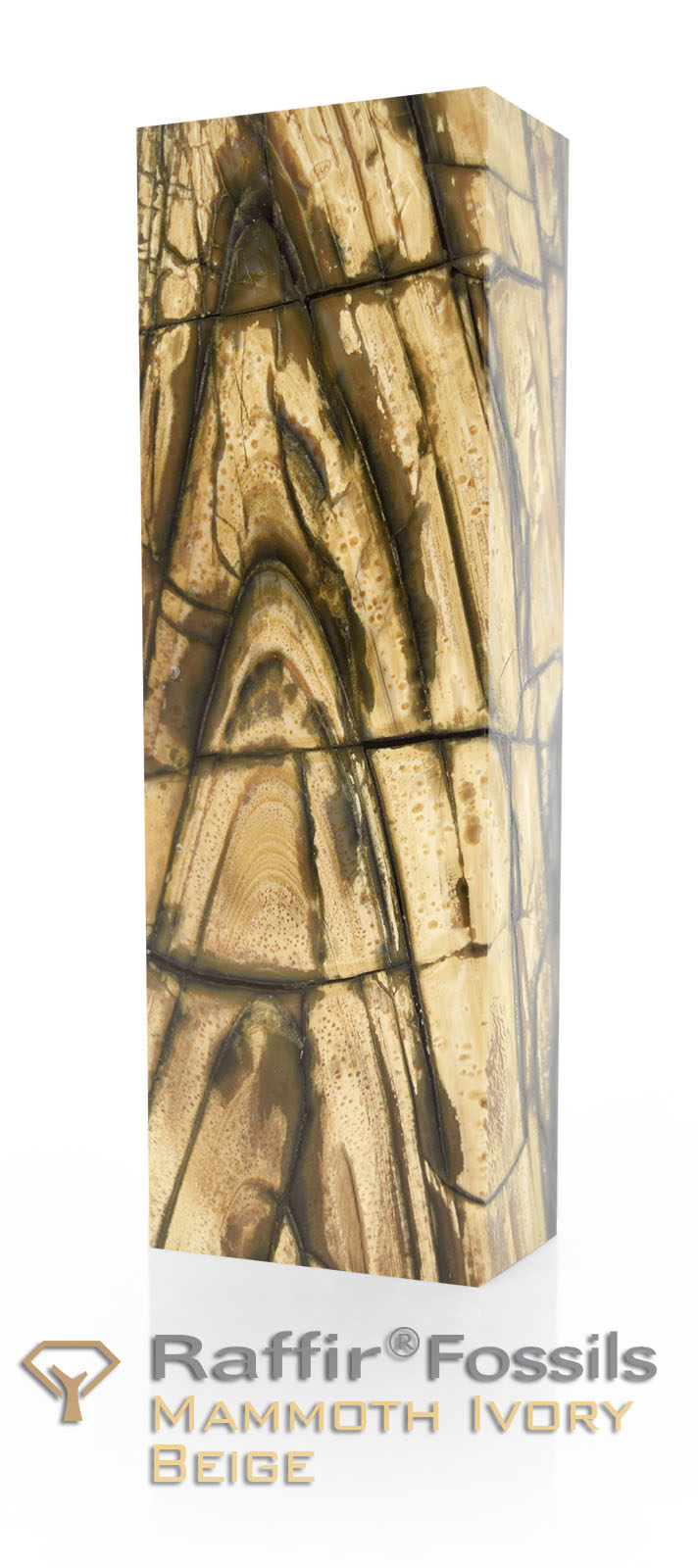MAMMOTH TUSK
Stabilized Mammoth Tusk
Raffir Wood is real fossils from the last ice age (10,000-40,000 BP). We have developed highly specialized treatments to strengthen fossils. As a result, such fragile materials are finally useful for unique luxury products. It is popular in a wide range of fine crafts and unique products. It is very useful for fine handles, jewelry and inlays. But we also recommend it for many other precious small-sized objects – follow this link for inspiration.
Material Variation in Mammoth Tusk
The natural colors vary greatly from bright white to dark brown. This depends on the temperature, humidity and sediment composition where fossil hunters find it after thousands of years. Please find the typical array of natural colors below. The availability of color differs from batch to batch, so please contact us for specific requirements.
Processing and dimensions
The mammoth tusk is not yet petrified. Therefore, normal tools for bone and horn are sufficient. Diamond tools are useful, but not necessary. The dimensions depend a lot on the input material. Obviously, the raw material have different sizes. Normally, fossil hunters only find them as fragments. This also limits the product sizes to smaller objects. Our standard handle blocks are 120*40*22mm. We also cut scales pairs of 120*40*6mm. Meanwhile, most of the material comes in non-standard dimensions. In example, we only fix the crosscut discs (to the right) on thickness. So check our retailers for their current availability. Otherwise please contact us for special requirements regarding mammoth Tusk. To see our references, click here.
Creating our own unique materials
Ever since we started making knives we also dreamed about creating and stabilizing our own unique handle materials. We started experimenting with ways to stabilize wood even before we started Sort & Schou. But after our first expedition we had finally earned enough money to really get started. We then invested in heavier equipment for the vacuum and high-pressure treatments that are key for a successful wood stabilization. You can read more about how Raffir came to life here.

Stabilized mammoth tusk discs in curing process
See the incredible finish of polished wood here






